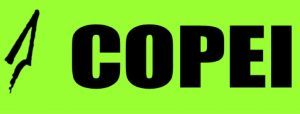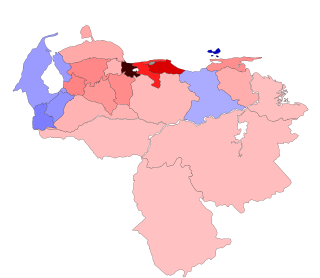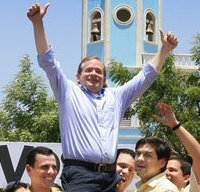Related Research Articles

The National Electoral Council is the head of one of the five branches of government of Venezuela under its 1999 constitution. It is the institution that has the responsibility of overseeing and guaranteeing the transparency of all elections and referendums in Venezuela at the local, regional, and national levels. The creation of the CNE was ratified in Venezuela's 1999 constitutional referendum. Following the election of Nicolás Maduro into the presidency, the CNE has been described, by the president's opponents, as being pro-Maduro.

The Supreme Justice Tribunal is the highest court of law in the Bolivarian Republic of Venezuela and is the head of the judicial branch. As the independence of the Venezuelan judiciary under the regime of Nicolás Maduro is questioned, there have recently been many disputes as to whether this court is legitimate.

Súmate is a Venezuelan volunteer civil association founded in 2002 by María Corina Machado and Alejandro Plaz. Súmate describes itself as a vote-monitoring group; it has also been described as an election-monitoring group.

COPEI, also referred to as the Social Christian Party or Green Party, is a Christian democratic party in Venezuela. The acronym stands for Comité de Organización Política Electoral Independiente, but this provisional full name has fallen out of use. The party was influential during the twentieth century as a signatory of the Puntofijo Pact and influenced many politicians throughout Latin America at its peak.

Presidential elections were held in Venezuela on 3 December 2006 to elect a president for a six-year term to begin on 10 January 2007. The contest was primarily between incumbent President Hugo Chávez, and Zulia Governor Manuel Rosales of the opposition party A New Era.

María Corina Machado Parisca is a Venezuelan opposition politician and industrial engineer who served as an elected member of the National Assembly of Venezuela from 2011 to 2014. Machado entered politics in 2002 as the founder and leader of the vote-monitoring group Súmate, alongside Alejandro Plaz. She is the National Coordinator of political party, Vente Venezuela. In 2018, she was listed as one of BBC's 100 Women. Machado is regarded as a leading figure of the Venezuelan opposition; the Nicolás Maduro government in Venezuela has banned Machado from leaving Venezuela.
Alejandro Plaz Castillo is a founder of the Venezuelan volunteer civil association, Súmate.

The Democratic Unity Roundtable was a catch-all electoral coalition of Venezuelan political parties formed in January 2008 to unify the opposition to President Hugo Chávez's United Socialist Party of Venezuela in the 2010 Venezuelan parliamentary election. A previous opposition umbrella group, the Coordinadora Democrática, had collapsed after the failure of the 2004 Venezuelan recall referendum.

The 2015 Catalan regional election was held on Sunday, 27 September 2015, electing the 11th Parliament of the autonomous community of Catalonia. All 135 seats in the Parliament were up for election. This was the third regional Catalan election in only five years, after the 2010 and 2012 elections and the first one in over 37 years in which Democratic Convergence of Catalonia (CDC) and Democratic Union of Catalonia (UDC) ran separately, after the dissolution of Convergence and Union (CiU) in June 2015 over disagreements on the coalition's separatist turn.

Parliamentary elections were held in Venezuela on 6 December 2015 to elect the 164 deputies and three indigenous representatives of the National Assembly. They were the fourth parliamentary elections to take place after the 1999 constitution, which abolished the bicameral system in favour of a unicameral parliament, and the first to take place after the death of President Hugo Chávez. Despite predictions from the opposition of a possible last-minute cancellation, the elections took place as scheduled, with the majority of polls showing the Democratic Unity Roundtable (MUD) holding a wide lead over the ruling United Socialist Party of Venezuela (PSUV) and its wider alliance, the Great Patriotic Pole (GPP).

Presidential elections were held in Venezuela on 20 May 2018, with incumbent Nicolás Maduro being declared reelected for a second six-year term. The original electoral date was scheduled for December 2018 but was subsequently pulled ahead to 22 April before being pushed back to 20 May. Some analysts described the poll as a sham election, as many prominent opposition parties had been barred from participating in it. The elections had the lowest voter turnout in Venezuela's democratic era.

Regional elections were held in Venezuela on 15 October 2017 to elect the executive position of all 23 federal entities. This marked the first state executive election not held on the same date as elections for state legislatures, and the second separate from municipal elections. They were the 9th regional elections held in Venezuela since 1989.

The Broad Front was a Chilean political coalition founded in early 2017, composed of left-wing parties and movements. Its first electoral contest was the 2017 Chilean general election, where their presidential candidate Beatriz Sánchez came third with 20% of the vote in the first round of election. The Broad Front also expanded their electoral representation to 20 deputies, 1 senator and 21 out of 278 Regional Councillors, thus consolidating the movement as the 'third force' in Chilean politics.

Municipal elections were held in Venezuela on 10 December 2017, to elect 335 mayors throughout Venezuela, as well as the governor of the state of Zulia. This was the first municipal election held since 2013, when elections were delayed from 2012 following the death of Hugo Chávez. The election resulted in many members of the United Socialist Party of Venezuela being elected as heads of municipal governments throughout Venezuela.

The primary elections of the Unity Roundtable were held on February 12, 2012, and determined the presidential candidate of the Democratic Unity Roundtable (MUD) for the 2012 Venezuelan presidential election, which were held on October 7, As well as their candidates in the coming regional and municipal elections, to be held in December 2012 and December 2013 respectively. These were the first open presidential primaries in the history of Venezuela, and the largest of its kind and in participation in world history.

A referendum was held in Venezuela on 16 July 2017. The referendum was called by the National Assembly in response to the constitutional crisis and President Nicolás Maduro's plans for a Constituent Assembly. The referendum was an act of civil disobedience in the context of the application of Articles 333 and 350 of the Venezuelan constitution, with the articles calling for Venezuelans to "disown any regime ... that violates democratic values", especially since the National Electoral Council and the Supreme Tribunal of Justice were not recognized in the referendum. The opposition Democratic Unity Roundtable (MUD) announced that there would be 2,030 areas for the popular consultation nationwide to serve more than 19 million voters.
Parliamentary elections were held in Venezuela on 6 December 2020. Aside from the 167 deputies of the National Assembly who are eligible to be re-elected, the new National Electoral Council president announced that the assembly would increase by 110 seats, for a total of 277 deputies to be elected.

The Homeland card is a Venezuelan identity document that includes a unique personalized QR code. It was created in 2016 by the Venezuelan government with the objective of knowing the socioeconomic status of the population and streamlining the system of the Bolivarian missions and that of the local committees of supply and production (CLAP).

Juan Pablo Isidoro Guanipa Villalobos is a Venezuelan lawyer and politician who served as deputy and First Vice President of the National Assembly, leader of the Justice First political party and former governor of Zulia. He was a presidential candidate in the 2018 elections until boycott. Guanipa is the regional coordinator of the Justice First party in Zulia and chairs the Maracaibo Posible foundation.

Regional and municipal elections were held in Venezuela on 21 November 2021. In the elections, all executive and legislative positions of the 23 federal entities, as well as that of the 335 municipalities of the country, were renewed.
References
- ↑ "Consideran que Voto Joven es una organización que promueve y defiende el derecho al sufragio". Noticias24. El Nacional. 12 March 2012. Archived from the original on 8 November 2017. Retrieved 15 July 2017.
- ↑ "VotoJoven". Archived from the original on 19 July 2017. Retrieved 15 July 2017.
- ↑ "Liberados los tres miembros de ONG Voto Joven". Noticiero Digital. 26 September 2010. Retrieved 19 June 2018.
- ↑ "Lo que debe saber sobre la consulta popular del 16J". Comunicas. 11 July 2017. Retrieved 14 July 2015.
- ↑ Scharfenberg, Ewald (2013-03-27). "La oposición estudiantil se vuelca para exigir elecciones limpias en Venezuela". El País (in Spanish). ISSN 1134-6582 . Retrieved 2024-03-31.